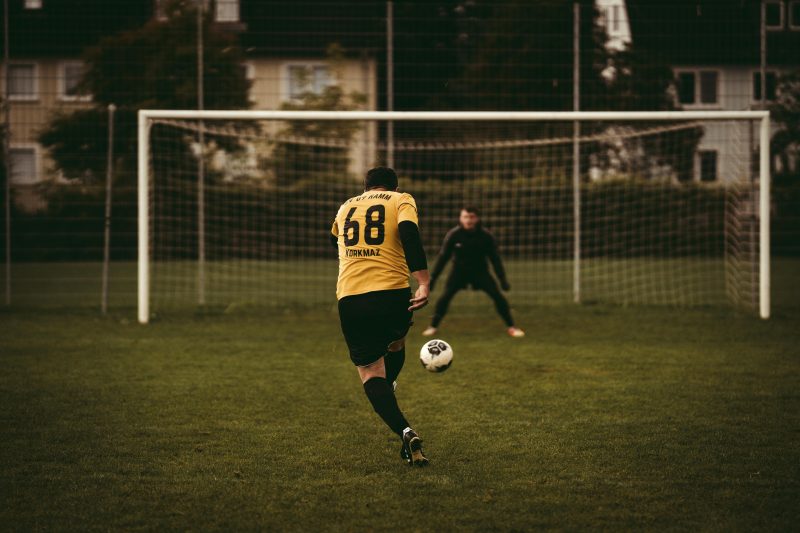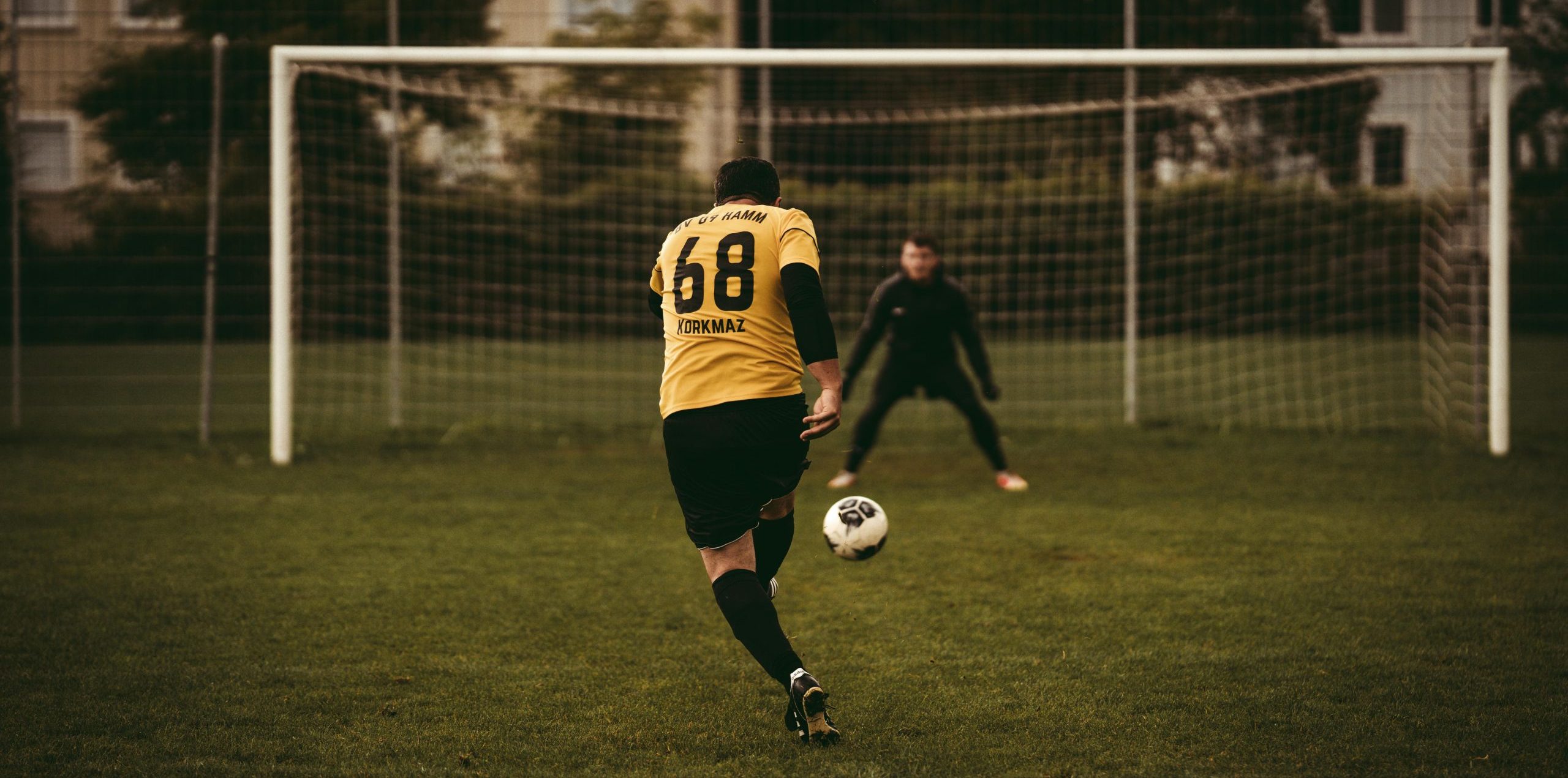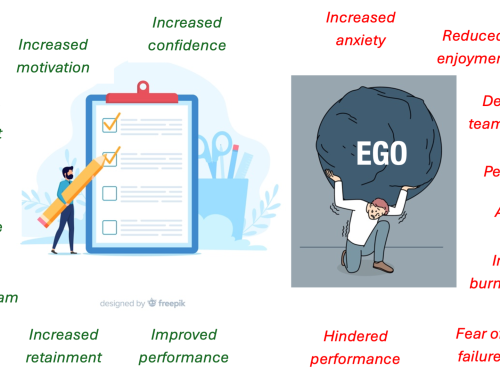What is Pressure?
When talking about pressure we can often think about any situation where we feel stressed due to a desire or need to perform in a certain way. This may be an exam at school, this may be a presentation at work, or this may be a sports match. Everyone is different, and so, whilst there will be some overlap, what causes us stress or worry does not necessarily have the same effect on someone else.
But why?
For us to feel pressure in a situation, we must first see the situation as demanding. But what is ‘demanding’ for me, may not be so ‘demanding’ for you. Let’s take the example of a penalty shootout… I think most of us can agree that we wouldn’t fancy standing up in front of millions of people to take the deciding penalty.

To all of you non-footballers, taking a penalty is unfamiliar ground and is going to take a good amount of mental and physical effort to even attempt. I don’t think this is news to you but, we as humans don’t like effort very much and we definitely don’t like uncertainty. So, a penalty shootout causes us stress.
Does that mean a professional footballer wouldn’t find a penalty shootout stressful because they are more familiar with it?
Yes, a professional footballer may be more familiar with penalty shootouts, they may have done hundreds in their career… but this does not mean that the event is any less stressful for them. Rather, WHY they find it stressful may differ. If I took on Thierry Henry in a penalty shootout live on TV tomorrow, who would be expected to win? Who would have more to lose from the situation? Sometimes being the underdog can decrease the pressure we experience whilst being the favourite adds a whole other layer of pressure and stress. Taking the deciding penalty for your team as a professional striker inevitably holds expectations and the potential for damage to our self-esteem. So, yes I think it is safe to say that even professional footballers can feel under pressure during important penalty shootouts.
So, what impact does pressure have on performance?
People often think that pressure or stress is a bad thing, that it worsens our performance and leads to unwanted outcomes. But I’m sure you can all think of people you know who seem to thrive off it, for whom pressure seems to draw out their best. However annoying we might think of this as being, especially as someone who hates pressure and crumbles at the mere thought of it, it actually presents a very positive reality.
Pressure alone is not negative or damaging, and it does not automatically cause us to perform badly.
Pressure in fact, can be beneficial, it can encourage our best performances, so long as we know how. Those that thrive under pressure do not possess some ‘out-of-this-world’ power that exists only in the selected few… it is much simpler and more achievable than that.
How we perform under pressure, is the result of how much we believe ourselves to have the tools to be able to be successful in the situation, or at least to be able to cope. Imagine it like a scale on which we weigh up our personal resources with the demands of the situation.

Let’s return to the penalty shootout situation and see what this really means. How do demands and resources relate to choking and/or thriving under pressure.
Choking Under Pressure
Imagine an athlete who has recently missed an important penalty, or an ‘easy’ goal in the match, lining up for their shot. Their past experiences may be telling them they can’t do it or be putting more pressure on them to be successful this time. Their focus may start to be on what they don’t want to happen, what they want to avoid, telling themselves “don’t miss”. Perhaps they have such a bad history with penalties that they fail to believe they have a chance of scoring this one, of controlling their performance, and of influencing its outcomes. The penalty now presents a threat… the athlete feels they have so much to lose, so much pressure on them, but they also believe that they do not have the resources or tools needed to cope or to be successful. This is when performance suffers, this is when we see athletes ‘choke’, and this is what can lead to downward spirals that feed our negative beliefs and influence later performances.
Thriving Under Pressure
However, it’s not all doom and gloom. The key word in the above example is beliefs… this means that changing our beliefs can influence and change our performance. A second athlete lining up for their penalty is still feeling the pressure on them to perform. However, this athlete views the penalty kick as a challenge, something that may be demanding but is also achievable, embracing the feelings of anxiety. They have confidence in their ability to perform, their focus is on what they want to achieve, they may say to themselves ‘hit the bottom right corner’. They believe that because of their commitment to and effort in training, they are in control of their performance, they are prepared and well-equipped. This is when an athlete thrives. Now the athletes’ resources outweigh the demands of the situation. Not only do athletes with this mindset manage to maintain their performance under pressure, but they can even sometimes perform at their best, pulling out a ‘clutch’ performance.
Pressure isn’t all bad, it gives us the opportunity to develop and grow and can, if we are well-equipped for it, encourage our best performances. If we can build up our personal resources, then what was once a threat can become a challenge, and we can start to thrive when performing under pressure.





Leave A Comment